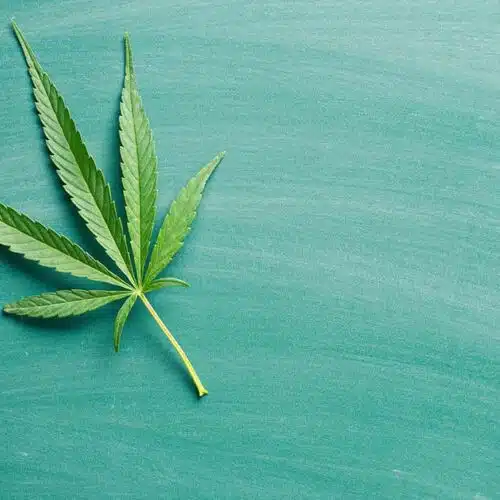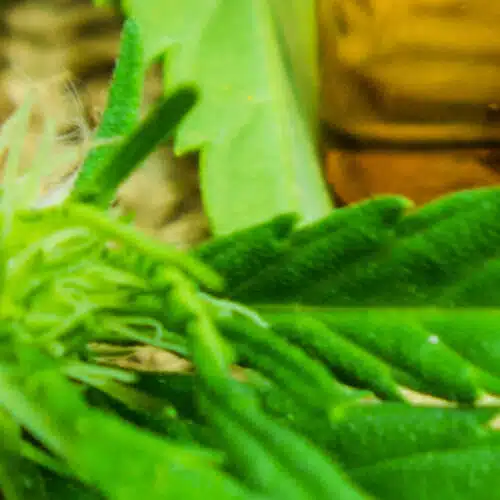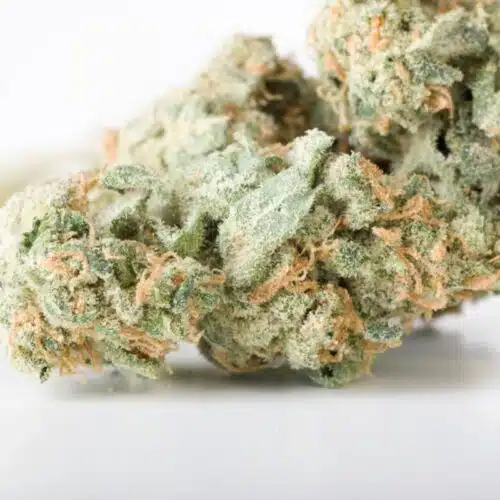By Hoam Rogh | Published in Hawaiian News Daily
Due Process secures your freedom. Many don’t know how it works, though, so we’ll explain it.
Basically, Due Process protects fairness by banning arbitrary government action. We submit to the power of our government because it is required to be fair. All laws must have a basis in fact.
Prejudice cannot form the basis for valid laws. Personal power cannot be why a law is a law, rather FACTS must dictate the laws. Before any law is passed by Congress, there is (or supposed to be) “fact-finding”. Then those facts are tacked to the front of the law. They provide the “why” to the law that follows.
The marijuana laws in the United States violate your Due Process rights! How can we say that? Because of the “holdings” (opinions) of the Supreme Court. Here are the Top Five Supreme Court cases that SHOULD end the marijuana crimes.
1) Village of Euclid
Village of Euclid v. Amber Reality, handed down by the Supreme Court in 1926, dealt with “arbitrary laws.”
Here’s its good stuff:
“While the meaning of constitutional guaranties never varies, the scope of their application must expand or contract to meet the new and different conditions which are constantly coming within the field of their operation. In a changing world, it is impossible that it should be otherwise.”
That’s the law. Due process ensures fairness. So if new evidence comes to light due to science that makes a murder’s guilty verdict worthless, it is NOT FAIR to give him the electric chair!
When pot was made criminal, we had no clue how it worked. Now, we know exactly. And the scientific facts of marijuana do not make sense when compared to the law that criminalize its mere possession.
When the law was passed in 1970, Congress had no blacks, no women, no real representation of America. However, it had full authority to make the law. The law, the Controlled Substances Act (CSA) of 1970, dealt not merely with marijuana but with ALL drugs. It got little debate, and marijuana in general had no debate, or even fact finding until after the law was passed. It became law because of the vote in Congress, no recorded count exists. Merely, the “yays” beat out the “nays”.
These new facts about marijuana, e.g. how it works in your mind and body, must be considered because the law’s purpose–according to the “facts” Congress found–was to ensure that safe and useful drugs would be easily available to the public, but dangerous drugs would be controlled. Marijuana’s greatest danger is its legal status. That cannot be factually said about ANY other criminal substance.
This leads us to the next case….
2) Caroline Products
We’ve written about this here. And the actual case can be read here.
This 1938 Supreme Court case dealt with whether it was arbitrary to ban “filled milk”. It provided an analysis of an issue that is very similar to the marijuana crimes. Congress made a law with different classes of things, just like how marijuana and heroin are both criminally prohibited by their schedule 1 classification. But depending on how different things are in a particular class, the classification may be arbitrary. For example, putting heroin and marijuana together in the same class makes little to no sense when analyzing the facts behind the two substances.
Here’s THE quality excerpt:
Where the existence of a rational basis for legislation whose constitutionality is attacked depends upon facts beyond the sphere of judicial notice, such facts may properly be made the subject of judicial inquiry, Borden’s Farm Products Co. v. Baldwin, 293 U.S. 194, and the constitutionality of a statute predicated upon the existence of a particular state of facts may be challenged by showing to the court that those facts have ceased to exist.Chastleton Corporation v. Sinclair, 264 U.S. 543. Similarly we recognize that the constitutionality of a statute, valid on its face, may be assailed by proof of facts tending to show that the statute as applied to a particular 154*154 article is without support in reason because the article, although within the prohibited class, is so different from others of the class as to be without the reason for the prohibition, Railroad Retirement Board v. Alton R. Co.,295 U.S. 330, 349, 351, 352; seeWhitney v. California, 274 U.S. 357, 379; cf. Morf v. Bingaman, 298 U.S. 407, 413, though the effect of such proof depends on the relevant circumstances of each case, as for example the administrative difficulty of excluding the article from the regulated class. Carmichael v.Southern Coal & Coke Co., 301 U.S. 495, 511-512; South Carolina v. Barnwell Bros., 303 U.S. 177, 192-193. But by their very nature such inquiries, where the legislative judgment is drawn in question, must be restricted to the issue whether any state of facts either known or which could reasonably be assumed affords support for it.
The Marijuana crimes are readily distinugishable from this case. First, no findings were EVER done by Congress as to the factual nature of marijuana.EVER! No “facts either known or … reasonably assumed afford” any support whatsoever for the marijuana crimes!
Congress would need to go back to 1937, when the AMA told them there was no such thing as a marijuana problem, that the term was racist, and to stop it before madness happened. Congress would also have to ignore fact finding of the British Empire where marijuana is from, India, in 1893. The La Guardia report from the 1930s. The Jamaican studies in the 1960s. Basically ANYTHING ever done by science regarding the harm of marijuana.
The FACTS show that even the study done by the US government AFTER Congress criminalized the “drug” marijuana proved it should not be a crime.
moving on…
3) Vance v. Bradley
Read the whole case here.
The Supreme Court explained a long held judicial tradition in this case from 1979. Courts do NOT sit as a “super legislature”. Fine, they do it all the time! For example, corporate political speech is purely a judicial creation. However, when Congress acts, the Court cannot say Congress was wrong and then impose their opinion of what makes for a better law. Courts always frame cases like this by saying that a law is “silly,” or that they would not have voted for it. Then they declare the law constitutional. On the other hand, laws that violate the Constitution go far beyond being merely silly, e.g. the marijuana crimes.
Remember, we’ve been building on a theme here. New facts about pot exist now that did not exist at the time the law was made. Congress found no facts when criminalizing marijuana so when the Court looks at what Congress found, there is nothing there! The final point is expressed with this excerpt from the opinion:
The Constitution presumes that, absent some reason to infer antipathy, even improvident decisions will eventually be rectified by the democratic process and that judicial intervention is generally unwarranted no matter how unwisely we may think a political branch has acted. Thus, we will not overturn such a statute unless the varying treatment of different groups or persons is so unrelated to the achievement of any combination of legitimate purposes that we can only conclude that the legislature’s actions were irrational.
Absent some reason to “infer antipathy” the law will be constitutional. Is criminalizing millions of your own people on dubious evidence, shoddy voting, and government suppression of facts reason enough to “infer antipathy”? YES!
Each year, over 800,000 Americas are arrested, detained and either fined or imprisoned for having a plant that not one scientific fact can show is any more harmful to them than literally tens of thousands of legal products. Not one death will come of it. That’s 0, zip, zilch.
The worst harms associated from marijuana use all have to do with its illegality. We’re subsidizing crime by its very creation due solely to prejudice! Congress found NO facts about marijuana’s harmful effects until AFTER criminalizing its possession. The reason marijuana ended up criminally prohibited by its schedule 1 status had to do with Congress NOT KNOWING the facts about it. We know them now. To sit idlely by and do nothing won’t work. It won’t work because the problem is NOT a political issue.
Marijuana users don’t have a large lobby. They can’t! It’s illegal to sell, use, or even possess! The courts are independent and do not have to pander to voters. They don’t need the millions of dollars of contributions to political campaigns that come from the law enforcement industry. Those donations ensure continued billions of dollars in federal spending to win the war against marijuana.
It’s not a political issue if one side is a lower class of citizen that is criminalized for their actions. The only way to personally understand the marijuana issue is to BREAK THE LAW! If this is not enough to “infer antipathy” what is? Congress made millions of criminals without regard to the facts required to do so!
4) Raich Case
This supreme court cast from 2005 has absolutely nothing to do with your due process rights. We are only going to exceprt the 1 sentence we need to show you the slight tip of the hat given to the arguments we’ve provided above.
Nor do they contend that any provision or section of the CSA amounts to an unconstitutional exercise of congressional authority.
We contend that now, ladies and gentlemen.
If you want a hard on for limited Constitutional government, please read Thomas’ spirited dissent, here.The rest of this case dealt with the commerce clause and its utter domination of even purely in state, non economic actions. This case guarantees Obama care is constitutional.
Finally…
5) FCC v. Beach.
This case from 1993 –also written by Thomas– has the test. We at Marijuana Prohibition is Unconstitutional have written extensively on this test. This is the test you need to know. Marijuana prohibiton should fail the hell outta this test due to the information provided above.
Here it succinctly is:
Whether embodied in the Fourteenth Amendment or inferred from the Fifth, equal protection is not a license for courts to judge the wisdom, fairness, or logic of legislative choices. In areas of social and economic policy, a statutory classification that neither proceeds along suspect lines nor infringes fundamental constitutional rights must be upheld against equal protection challenge if there is any reasonably conceivable state of facts that could provide a rational basis for the classification. See Sullivanv. Stroop, 496 U. S. 478, 485 (1990); Bowen v.Gilliard, 483 U. S. 587, 600-603 (1987); United States Railroad Retirement Bd. v.Fritz, 449 U. S. 166, 174-179 (1980); Dandridge v. Williams,397 U. S. 471, 484-485 (1970). Where there are “plausible reasons” for 314*314 Congress’ action, “our inquiry is at an end.”United States Railroad Retirement Bd. v. Fritz, supra, at 179.
First, we take issue with marijuana crimes. They are a criminal law due to their schedule 1 status. They merely mask themselves with the commercial and therefore social or economic policy fold. However, such crimes should be police issues for the states. That is not the state of the federal law, so we go further.
We do not juge the wisdom of the marijuana laws. No. Instead the only thing to resolve is whether Congress acted plausibly because their action is supported by any set of facts either known or reasonably assumed by Congress.
IT FAILS!
Congress found the facts about marijuana AFTER they criminalized its mere possession! How can that be rational? How is it plausible to begin a war without facts? Marijuana would not be a crime had Congress acted plausibly and found facts, or looked to existing facts from 1893 in the British Empire, 1937 with AMA testimony to Congress on the dangers of cannabis, 1940 with the LaGuardia report, or 1968 with the Jamaican studies.
Simply because Congress did nothing does not make their actions “plausible,” especially considering the criminalization of millions of people was at stake and well over 100 years of medical use of cannabis existed showing that it did not cause death or addiction, that recent scientific studies also confirmed this. Simply criminalizing the plant –the WHOLE plant– and then doing an official US study, which also confirmed it should not be criminalized, is NOT plausible.


